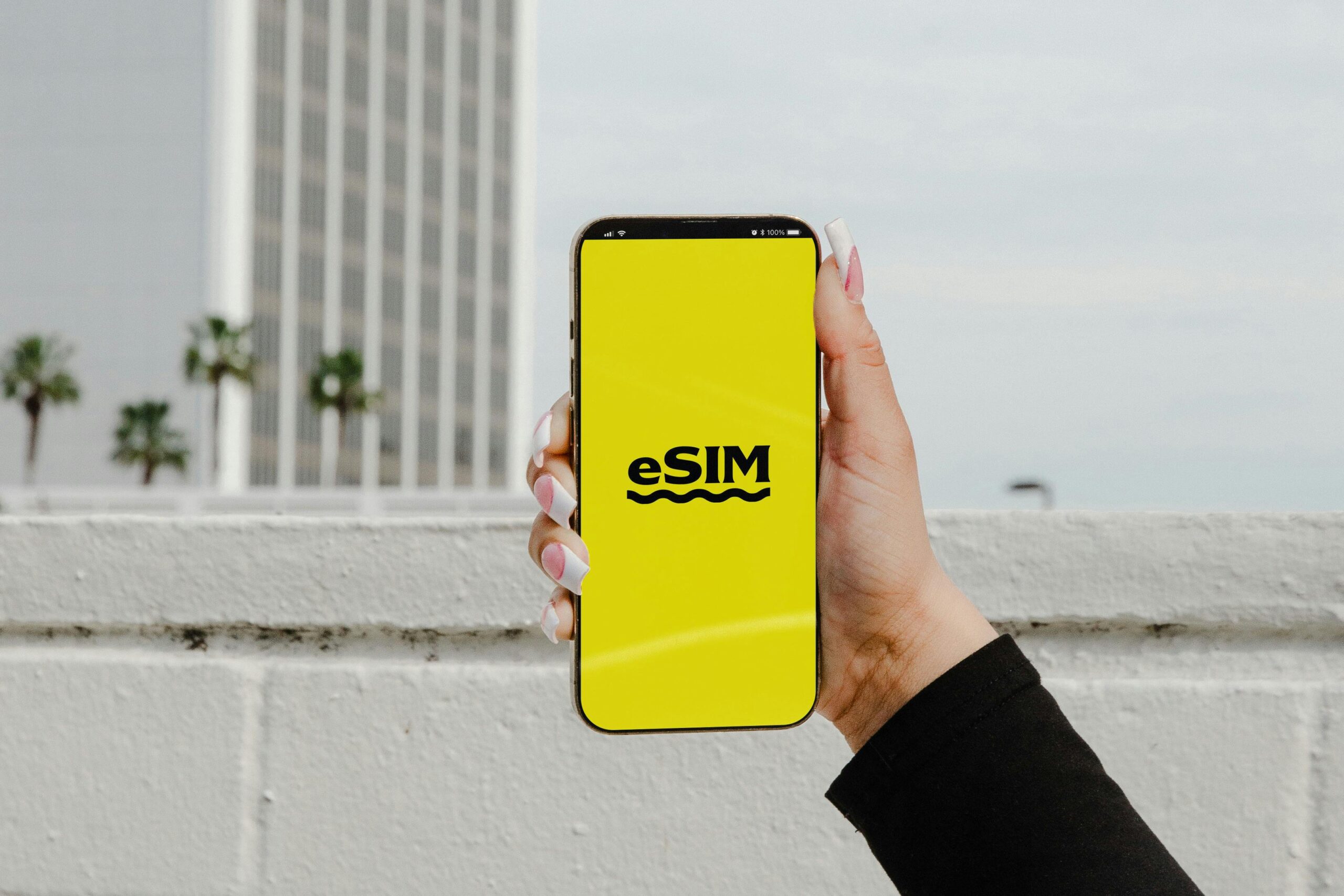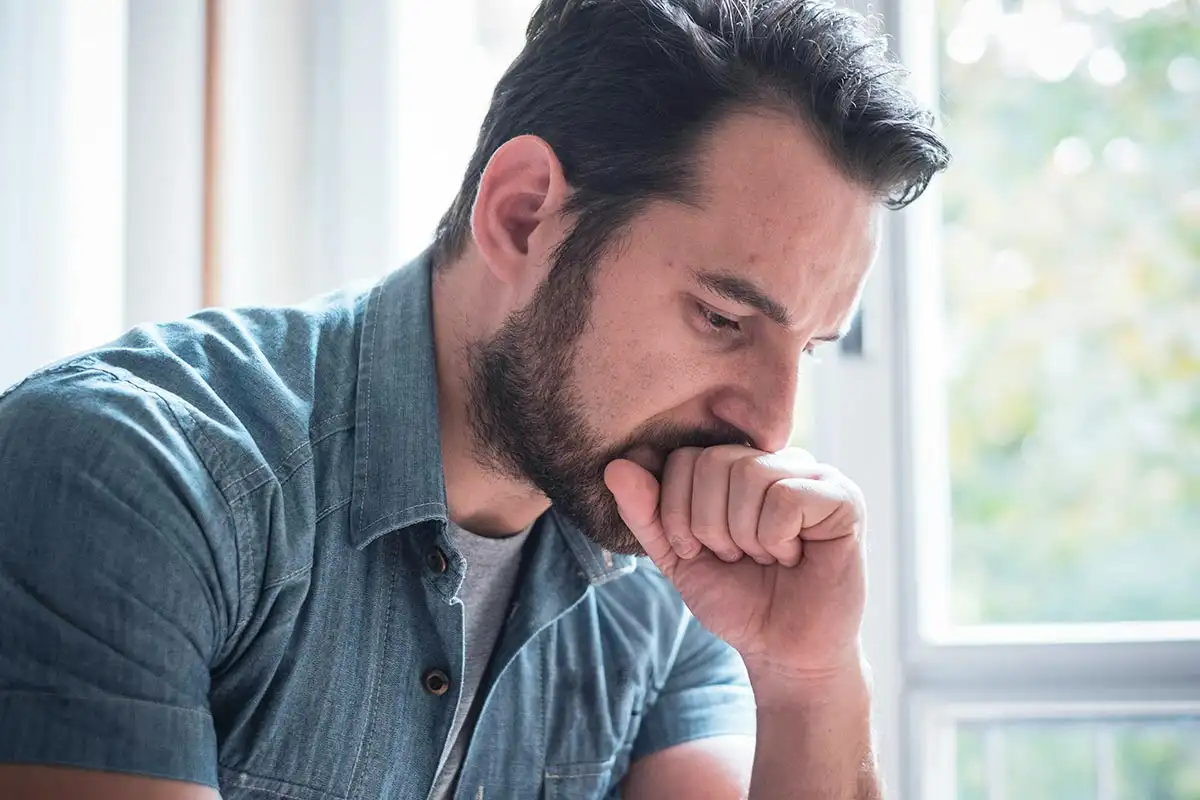
Transitioning from Virtual IOP to Aftercare in California
Medically Reviewed by:

Dr. Marco M. Zahedi
Medical Director, Compassion Recovery Center

Dr. Michael Majeski
Licensed Psychologist (LP), Compassion Recovery Center
Table of Contents
Navigating Your Recovery Journey: From Virtual IOP to Lasting Aftercare in California
Embarking on the path to recovery from drug or alcohol addiction is a courageous and life-altering decision. For many in California, particularly in areas like Orange County, Virtual Intensive Outpatient Programs (IOPs) have become a vital and accessible first step. These programs offer structured, comprehensive treatment from the comfort and privacy of your own home. However, completing a Virtual IOP is not the end of the journey; it’s a significant milestone that prepares you for the next crucial phase: aftercare. Transitioning effectively from a Virtual IOP to a robust aftercare plan is fundamental to sustaining long-term sobriety and building a fulfilling life free from substance dependence. At Compassion Recovery Center, we specialize in providing telehealth-based addiction treatment, guiding individuals throughout California, including those seeking drug rehab programs and alcohol rehab programs, not only through intensive treatment but also in creating a seamless bridge to ongoing support. We understand that recovery is a continuous process, and our commitment extends to helping you build a strong foundation for the future.
The move from the structured environment of an IOP to the greater autonomy of aftercare can feel daunting. This guide is designed to illuminate that path, offering insights into what Virtual IOP entails, why the transition to aftercare is so important, and how you can navigate this change successfully. We’ll explore various aftercare options available in California, discuss potential challenges, and highlight how Compassion Recovery Center’s remote services can support you every step of the way. Our goal is to empower you with knowledge and resources, making the prospect of sustained recovery less overwhelming and more achievable. Whether you’re currently in a Virtual IOP, considering one, or supporting a loved one, understanding this transition is key to fostering lasting well-being. If you’re ready to explore treatment options or need guidance, we encourage you to reach out today for a confidential conversation.

Understanding Virtual IOP
A Virtual Intensive Outpatient Program (IOP) is a structured form of addiction treatment that allows individuals to receive comprehensive care remotely, using telehealth technologies. Unlike residential programs that require clients to live on-site, a Virtual IOP offers the flexibility to attend therapy sessions, group meetings, and other treatment activities from home or any private, secure location with an internet connection. This model has become increasingly popular, especially for those who need robust treatment but also have work, school, or family responsibilities they must maintain. For residents in California, particularly those looking for an “Orange County IOP” experience without the geographical constraints, virtual options provide unprecedented access to quality care.
The benefits of a Virtual IOP are numerous. Firstly, accessibility is a major advantage. Individuals in remote areas or those with transportation challenges can access top-tier treatment that might otherwise be unavailable. Secondly, flexibility allows clients to integrate treatment into their daily lives, practicing coping skills in real-time within their own environment. This can make the transition to everyday life post-treatment smoother. Thirdly, privacy and comfort are enhanced, as individuals can participate from a familiar setting, which can reduce anxiety and stigma often associated with seeking help. Furthermore, Virtual IOPs are often more cost-effective than residential programs, as they eliminate expenses related to room and board. If you’re wondering whether this model is right for you, you can verify your insurance online to see what coverage you may have for our programs.
So, how does a Virtual IOP program work in California? Typically, it involves several hours of programming per week, often scheduled in the evenings or at other times conducive to working professionals or students. At Compassion Recovery Center, our Virtual IOP utilizes secure video conferencing platforms for a range of therapeutic activities. Key components of a successful Virtual IOP include:
- Individual Therapy: Regular one-on-one sessions with a licensed therapist to address personal challenges, underlying issues contributing to addiction, and progress towards recovery goals. Techniques like evidence-based therapies, including online CBT (Cognitive Behavioral Therapy), are central to this.
- Group Therapy: Facilitated group sessions where clients share experiences, offer mutual support, and learn from one another under the guidance of a therapist. These sessions cover topics such as relapse prevention, coping mechanisms, communication skills, and stress management.
- Family Therapy/Couples Counseling: Addiction often impacts relationships. Virtual couples counseling rehab or family sessions can be integral to healing these dynamics and building a supportive home environment.
- Psychoeducation: Educational workshops and sessions that provide information about the nature of addiction, the recovery process, mental health, and wellness.
- Case Management: Support in coordinating care, accessing resources, and planning for aftercare.
- Medication-Assisted Treatment (MAT): For some individuals, MAT treatment online can be a crucial component, helping to manage cravings and withdrawal symptoms under medical supervision. This is often integrated with behavioral therapies.
- Dual Diagnosis Treatment: Many individuals struggling with substance use also face co-occurring mental health conditions like depression, anxiety, or PTSD. A comprehensive Virtual IOP will address both through dual diagnosis treatment.
The technology is user-friendly, and our team provides support to ensure clients can comfortably navigate the virtual platform. The aim is to create an engaging, supportive, and effective treatment experience that mirrors the quality of in-person care, making “telehealth addiction treatment” a powerful tool for recovery in California and beyond. To learn more about what a day in our program looks like, you might find our article on what a day in rehab looks like inside an IOP schedule insightful.
The Transition Process
Successfully completing a Virtual IOP is a significant achievement, marking a pivotal point in your recovery. However, the journey doesn’t stop there. The transition from the structured support of an IOP to the more independent phase of aftercare is a critical period that requires careful planning and attention. Without a well-thought-out transition plan, the gains made during intensive treatment can be vulnerable. The importance of planning this transition cannot be overstated; it is the bridge between intensive therapy and sustained, real-world recovery.
Planning for aftercare should ideally begin well before you complete your Virtual IOP. At Compassion Recovery Center, our therapists and case managers work collaboratively with clients to develop a personalized aftercare strategy. This proactive approach ensures that you are not suddenly left without support once the IOP concludes. The steps involved in transitioning to aftercare typically include:
- Comprehensive Assessment: Towards the end of your IOP, a thorough assessment is conducted to evaluate your progress, identify ongoing needs, potential challenges, and strengths. This helps in tailoring the aftercare plan to your specific situation.
- Goal Setting: Together with your therapist, you’ll define clear, achievable goals for your continued recovery. These might include maintaining sobriety, improving relationships, advancing career or educational pursuits, and enhancing overall well-being.
- Identifying Aftercare Resources: Based on your needs and goals, appropriate aftercare resources are identified. This could range from ongoing individual therapy, support groups, sober living arrangements (if desired, though our primary services are remote), or specialized services like virtual couples counseling rehab for relationship support.
- Relapse Prevention Planning: A robust relapse prevention plan is a cornerstone of aftercare. This involves identifying personal triggers, developing coping strategies, and knowing who to contact for support if cravings or high-risk situations arise. Understanding how to identify and manage triggers is vital.
- Establishing a Support Network: Connecting with a strong support network is crucial. This may involve 12-step programs, SMART Recovery groups, alumni programs from your treatment provider, or other community-based support systems. We can help you find virtual options that fit your needs.
- Scheduling Initial Aftercare Appointments: Before finishing the IOP, it’s beneficial to have your initial aftercare appointments scheduled. This creates a seamless continuation of support and momentum.
The role of telehealth in facilitating a smooth transition is particularly significant, especially for those who have benefited from a Virtual IOP. Telehealth allows for continuity of care, often with the same providers or within the same treatment ecosystem. For instance, you might transition from a Virtual IOP program to less intensive virtual outpatient therapy or online support groups. This consistency can be incredibly comforting and effective. The convenience of telehealth means that even with a busy schedule or geographical limitations, you can continue to access vital support services. This is particularly relevant for those in Orange County looking for ongoing “remote drug rehab Orange County” support systems. Compassion Recovery Center leverages telehealth to ensure that your transition is as smooth and supported as possible, helping you to get help now and maintain it for the long term.
Understanding that this transition is a process, not an event, is key. There will be adjustments, and it’s okay to seek additional support as you navigate this new phase. The skills and insights gained in your Virtual IOP are your tools; aftercare is about learning to use them effectively in your daily life. For those concerned about continuing care, start your free assessment to discuss how we can support your aftercare planning.

Aftercare Options in California
California offers a diverse landscape of aftercare options designed to support individuals in maintaining their sobriety and continuing their personal growth after completing an initial treatment program like a Virtual IOP. The goal of aftercare is to reinforce the coping mechanisms, relapse prevention strategies, and healthy lifestyle changes learned during intensive treatment. Choosing the right aftercare program, or combination of programs, is a personal decision that should align with your individual needs, circumstances, and recovery goals. At Compassion Recovery Center, we help guide our clients, many of whom are seeking ongoing support in Orange County and throughout California, to find suitable telehealth-based aftercare solutions.
An overview of aftercare programs available includes:
- Ongoing Individual Therapy: Continuing one-on-one sessions with a therapist, perhaps less frequently than during IOP (e.g., weekly or bi-weekly). This provides a space to process challenges, reinforce coping skills, and work on deeper underlying issues. Online CBT therapy can be a highly effective ongoing option.
- Group Therapy/Support Groups: Participating in groups like Alcoholics Anonymous (AA), Narcotics Anonymous (NA), SMART Recovery, or other specialized support groups. These offer peer support, shared experiences, and a sense of community. Many of these are available virtually.
- Sober Living Homes (SLHs): For individuals who need a structured, substance-free living environment, SLHs can be beneficial. While Compassion Recovery Center focuses on remote treatment, we can provide referrals if this is deemed appropriate.
- Alumni Programs: Many treatment centers, including Compassion Recovery Center, offer alumni programs that provide continued connection, support, and sober social activities for program graduates.
- Medication-Assisted Treatment (MAT) Continuation: If MAT was part of your IOP, continuing this under medical supervision as part of your aftercare plan might be necessary. Our MAT treatment online services can support this.
- Outpatient Programs (OP): A step down from IOP, standard outpatient programs offer fewer hours of therapy per week but still provide structured support.
- Family and Couples Counseling: Continued therapy for families and partners can help strengthen relationships and ensure a supportive home environment, often available through virtual couples counseling rehab.
- Holistic Therapies: Engaging in activities like mindfulness, meditation, yoga, or art therapy, which can complement traditional therapies and support overall well-being. Many of these can be accessed or practiced remotely.
A key consideration is the difference between in-person and virtual aftercare. In-person aftercare involves attending physical meetings and appointments, which can be beneficial for those who thrive on face-to-face interaction and have easy access to local resources. However, virtual aftercare, delivered via telehealth, offers significant advantages, particularly in a large and diverse state like California. Virtual options provide unparalleled flexibility, allowing individuals to access support from anywhere, fitting sessions around work, family, or educational commitments. This is especially valuable for residents in sprawling areas like Orange County or those in more remote locations. Accessibility is another major plus, removing barriers related to transportation or physical mobility. For individuals who found comfort and success in a Virtual IOP, continuing with virtual aftercare can provide a sense of continuity and familiarity. Compassion Recovery Center champions telehealth addiction treatment for aftercare, believing it offers a sustainable and effective way to maintain recovery momentum.
How do you choose the right aftercare program? Consider the following:
- Your Specific Needs: Do you need ongoing support for a dual diagnosis? Is MAT a component of your recovery? Are there specific relationship issues to address?
- Level of Structure Required: Some individuals may need more structured support initially, while others might be ready for more independence.
- Logistical Feasibility: Can you realistically attend in-person sessions, or would virtual options be a better fit for your lifestyle and location?
- Therapeutic Approach: Does the program offer therapies that resonated with you during IOP, such as CBT or DBT?
- Cost and Insurance: What are the costs involved, and what does your insurance cover? You can check insurance coverage with us for our telehealth aftercare support options.
- Personal Preference: Ultimately, you need to feel comfortable and engaged with your aftercare plan.
At Compassion Recovery Center, we can help you navigate these choices, ensuring your aftercare plan is robust, personalized, and conducive to your long-term success. We encourage you to contact us for a confidential assessment to discuss your aftercare needs.
Challenges in Transitioning
The transition from the structured environment of a Virtual IOP to the more autonomous phase of aftercare, while a positive step, is not without its challenges. Being aware of these potential hurdles can help you, your family, and your treatment providers prepare strategies to overcome them, ensuring a smoother and more successful continuation of your recovery journey. Sustained recovery often involves navigating these bumps in the road with resilience and support.
Common challenges faced during this transition include:
- Reduced Structure and Accountability: IOPs provide a daily or weekly schedule of therapeutic activities and regular check-ins. Moving to aftercare often means less frequent formal contact, which can feel like a loss of structure and immediate accountability. This can be unsettling for some.
- Increased Exposure to Triggers: As individuals reintegrate more fully into their daily lives, they may encounter more triggers – people, places, or situations associated with past substance use. Managing these triggers independently can be a significant test.
- Fear of Relapse: The fear of relapse is common and can be heightened during periods of transition. This anxiety, while normal, needs to be addressed with healthy coping strategies rather than avoidance.
- Loneliness or Isolation: While group therapy in IOP provides a strong sense of community, transitioning out might lead to feelings of loneliness if new support networks are not actively cultivated. This is particularly true if old social circles were centered around substance use. Dealing with isolation is a key recovery skill.
- Complacency: After successfully completing an IOP, some individuals might feel overly confident and believe they no longer need to actively work on their recovery. This complacency can be dangerous, as recovery is an ongoing process.
- Difficulty Integrating Recovery into Daily Life: Balancing work, family, social life, and ongoing recovery activities (like meetings or therapy) can be challenging. It requires time management and prioritization.
- Managing Co-occurring Disorders: If you are receiving dual diagnosis treatment for a co-occurring mental health condition, the transition period can sometimes exacerbate symptoms if not carefully managed with continued mental health support.
- Pressure from Old Circles: Individuals may face pressure from former friends or acquaintances who still use substances, making it difficult to maintain boundaries.
Strategies to overcome these challenges are vital. At Compassion Recovery Center, we emphasize proactive planning and ongoing support:
- Develop a Strong Relapse Prevention Plan: This should be a living document, reviewed and updated as needed. It should include identification of high-risk situations, coping skills, and a list of support contacts. Coping with cravings effectively is a key part of this.
- Build a Robust Support System: Actively engage with support groups (virtual or in-person), connect with a sponsor if in a 12-step program, and maintain contact with supportive friends and family. Building your tribe is essential.
- Maintain a Routine: Establishing a healthy daily routine that includes time for recovery activities, work, self-care, and hobbies can provide structure and stability. The importance of routine cannot be overstated.
- Practice Self-Care: Prioritize activities that promote physical and mental well-being, such as exercise, healthy eating, adequate sleep, and mindfulness. Stress management is key.
- Set Realistic Expectations: Understand that recovery is a journey with ups and downs. Occasional setbacks or challenges do not mean failure.
- Stay Connected to Professional Support: Continue with individual therapy or counseling as recommended in your aftercare plan. Telehealth options make this more accessible.
- Set Healthy Boundaries: Learn to say no to situations or people that threaten your sobriety. Setting boundaries is a crucial skill.
The importance of support systems in the transition process is paramount. This includes professional support from therapists and counselors, peer support from groups and sponsors, and personal support from understanding family and friends. Compassion Recovery Center, as a provider of “remote drug rehab Orange County” services, emphasizes creating and leveraging these networks, often through virtual means, to ensure clients feel connected and supported even after formal IOP completion. If you are facing challenges or anticipating this transition, don’t hesitate to get help for substance abuse and discuss these concerns with our team.
Role of Compassion Recovery Center
Compassion Recovery Center plays a pivotal role not only in providing high-quality Virtual Intensive Outpatient Programs (IOPs) but also in meticulously supporting clients as they navigate the critical “Transitioning from Virtual IOP to Aftercare.” Our entire model is built around providing accessible, empathetic, and effective telehealth addiction treatment, making us uniquely positioned to help individuals in California, especially those in Orange County, build a seamless bridge from intensive treatment to sustainable, long-term recovery.
How does Compassion Recovery Center support clients in this transition? Our approach is holistic and personalized:
- Integrated Aftercare Planning: Aftercare planning isn’t an afterthought; it’s woven into our Virtual IOP from the early stages. Our therapists and case managers work with clients to identify their long-term recovery goals, potential challenges, and the types of support they will need post-IOP. This ensures a proactive rather than reactive approach to the transition.
- Continuity of Care: Whenever possible, we strive to offer continuity. Clients who have built a strong therapeutic alliance with their therapist during our Virtual IOP Program may be able to continue with them for less intensive, ongoing virtual therapy sessions as part of their aftercare. This familiarity can be incredibly beneficial during a period of change.
- Referral to Appropriate Resources: We maintain a network of trusted resources and can help connect clients to virtual support groups, specialized therapists (if needed beyond our scope), and other community supports that align with their aftercare plan.
- Relapse Prevention Education: A core component of our IOP is comprehensive relapse prevention training. We equip clients with the skills to identify triggers, develop coping strategies, and understand the warning signs of potential relapse, all of which are crucial for the aftercare phase.
- Alumni Support: We are developing alumni support initiatives to foster a continued sense of community and connection among those who have completed our programs. This can provide invaluable peer support and ongoing encouragement.
- Flexible Telehealth Options: Our expertise in telehealth means we can offer flexible aftercare support that fits into our clients’ lives. Whether it’s a check-in session, ongoing therapy, or participation in a virtual support group we facilitate or recommend, technology makes it accessible.
The services offered by Compassion Recovery Center are designed to provide comprehensive support through various stages of recovery:
- Remote IOP: Our flagship Intensive Outpatient Program (IOP) delivered virtually, providing structured therapy and support from the comfort of home. This is often the starting point for many of our clients.
- Online CBT Therapy: Cognitive Behavioral Therapy is a cornerstone of our treatment approach. We offer online CBT therapy both within our IOP and as an ongoing aftercare option to help clients change negative thought patterns and behaviors.
- MAT Treatment Online: For individuals struggling with opioid or alcohol dependence, we provide access to MAT treatment online, combining medication with counseling and behavioral therapies under medical supervision, which can continue into the aftercare phase.
- Virtual Couples Counseling Rehab: Addiction significantly impacts relationships. Our virtual couples counseling rehab helps partners heal, improve communication, and build a supportive relationship conducive to recovery, often a vital part of a successful aftercare plan.
- Dual Diagnosis Treatment: We understand the complexities of co-occurring mental health conditions and substance use disorders. Our dual diagnosis treatment approach addresses both simultaneously, ensuring that mental health support continues into aftercare.
- Outpatient Detox Support: For some, the journey may begin with Outpatient Detox, and we guide them through this initial phase into more intensive treatment and subsequent aftercare planning.
While individual success stories are unique and privacy is paramount, the outcomes we strive for at Compassion Recovery Center involve clients not just completing our Virtual IOP but successfully integrating back into their lives with a strong foundation for lasting sobriety. This means they are equipped with coping skills, have a solid support network, understand their relapse prevention plan, and feel confident in managing the challenges of daily life without resorting to substances. The success is measured by their ability to maintain long-term recovery, improve their quality of life, mend relationships, and pursue their personal and professional goals. Many individuals seeking “remote drug rehab Orange County” have found our telehealth model provides the flexibility and support needed to achieve these outcomes. We encourage you to Admissions Information to learn more about how we can tailor a program for you or your loved one, and to discuss how we support the transition to aftercare. Our team is ready to help you reach out today and start building a hopeful future.
Integrating Aftercare into Daily Life
The transition from a Virtual IOP to aftercare marks a shift towards greater independence, but also a greater responsibility for actively incorporating recovery practices into your everyday routine. Successfully integrating aftercare into daily life is crucial for sustaining motivation, preventing relapse, and building a fulfilling life in sobriety. It’s about making recovery not just a phase, but a way of life. This process requires conscious effort, planning, and a willingness to adapt. For those in California, especially in busy areas like Orange County, leveraging the flexibility of telehealth services offered by Compassion Recovery Center can make this integration more manageable.
Here are some practical tips for integrating aftercare into daily routines:
- Schedule Recovery Activities: Just as you schedule work meetings or appointments, block out time in your calendar for aftercare activities. This could be your weekly virtual therapy session, online support group meetings, time for journaling, meditation, or exercise. Treating these as non-negotiable appointments helps maintain consistency.
- Establish a Consistent Morning and Evening Routine: Routines provide structure and predictability, which can be very grounding in recovery. Start your day with a positive intention, perhaps some light stretching, meditation, or reading recovery literature. Wind down in the evening with calming activities, reflecting on your day and preparing for the next. The importance of routine in early recovery extends well into aftercare.
- Incorporate Mindfulness and Stress Management: Learn to practice mindfulness throughout your day, even for a few minutes at a time. This can help you stay present and manage stress. Techniques learned in online CBT therapy, such as deep breathing or progressive muscle relaxation, can be easily integrated. Explore our mindfulness meditation practices for addiction recovery.
- Prioritize Physical Health: Regular exercise, nutritious meals, and adequate sleep are fundamental to both physical and mental well-being, which in turn supports recovery. Find physical activities you enjoy and make them a regular part of your week.
- Identify and Utilize Sober Social Outlets: Actively seek out social activities and friendships that support your sobriety. This might involve joining clubs, volunteering, or participating in alumni events. Sober fun is achievable and enjoyable!
- Set Realistic Goals and Celebrate Milestones: Break down larger recovery goals into smaller, manageable steps. Acknowledge and celebrate your progress, no matter how small. This helps in celebrating milestones and why acknowledging progress matters.
- Continuous Learning and Growth: Recovery is an ongoing journey of self-discovery and personal development. Continue to read recovery literature, listen to podcasts, or attend workshops that support your growth.
Maintaining motivation and commitment to recovery can be challenging, especially as the initial intensity of treatment fades. Here are ways to keep that commitment strong:
- Reconnect with Your “Why”: Regularly remind yourself of the reasons you chose recovery. What are your motivations for staying sober? Write them down and revisit them often.
- Practice Gratitude: Focusing on what you’re grateful for can shift your perspective and boost positivity. Keep a gratitude journal.
- Stay Connected to Your Support System: Lean on your support network during tough times and share your successes with them. Regular contact, even virtually, can make a huge difference.
- Address Complacency: Be aware of the risk of complacency. If you find yourself thinking you no longer need meetings or therapy, discuss these feelings with your therapist or sponsor.
- Help Others: Engaging in service work or mentoring others in recovery can be incredibly rewarding and reinforce your own commitment. The power of sponsorship and mentorship is significant.
Utilizing telehealth for ongoing support is a powerful tool in modern aftercare. Compassion Recovery Center emphasizes the benefits of telehealth addiction treatment for sustained support. This can include:
- Virtual Therapy Sessions: Continue individual, group, or virtual couples counseling rehab from the convenience of your home, making it easier to maintain consistency.
- Online Support Groups: Access a wide range of support groups online, irrespective of your geographical location in California.
- Telehealth Check-ins: Brief virtual check-ins with a case manager or therapist can provide timely support and accountability.
- Digital Tools and Apps: Many apps offer guided meditations, mood tracking, and recovery resources that can complement your telehealth support.
Integrating aftercare into daily life is an art and a science, requiring commitment but offering profound rewards. By thoughtfully incorporating these strategies and leveraging available telehealth resources, individuals can build a resilient and joyful life in recovery. If you need help creating an aftercare plan that works for you, contact us for a confidential assessment. We are here to help you explore treatment options for long-term success.
Conclusion: Your Continued Path to Wellness
The journey from active addiction to sustained recovery is a transformative one, filled with challenges, growth, and profound achievements. Completing a Virtual Intensive Outpatient Program is a monumental step, but the path continues with the crucial phase of aftercare. As we’ve explored, successfully “Transitioning from Virtual IOP to Aftercare” is not merely a procedural step but a fundamental component of building a lasting foundation for sobriety and well-being. This transition requires planning, commitment, and ongoing support, all of which are central to the philosophy of care at Compassion Recovery Center.
We’ve seen how Virtual IOP California programs offer incredible accessibility and flexibility, allowing individuals, including those in Orange County, to receive high-quality drug rehab and alcohol rehab services from their own homes. The key components of these programs, from individual and group therapy to specialized treatments like online CBT therapy and MAT treatment online, are designed to equip individuals with the tools for initial sobriety. However, the real test comes in applying these tools in everyday life, which is where a robust aftercare plan, supported by ongoing telehealth services, becomes indispensable.
The transition itself involves careful planning, understanding the various aftercare options available—from continued virtual therapy and support groups to virtual couples counseling rehab—and navigating potential challenges with resilience. Integrating these aftercare practices into daily life, maintaining motivation, and utilizing support systems are ongoing processes that contribute to the richness and stability of a life in recovery.
Compassion Recovery Center is more than just a provider of “remote drug rehab Orange County” services; we are partners in your long-term recovery journey. We are deeply committed to supporting our clients not only through intensive treatment but also in establishing and maintaining effective aftercare strategies. Our telehealth platform ensures that high-quality support remains accessible, helping you overcome geographical barriers and integrate recovery seamlessly into your life. Whether you are just beginning to consider treatment, are currently in a program, or are looking to strengthen your aftercare plan, we encourage you to reach out today. Your recovery is a journey, not a destination, and every step forward, especially the transition into aftercare, is a testament to your strength and commitment to a healthier, more fulfilling future. Let us help you navigate this path with confidence and compassion. You can verify your insurance online or start your free assessment to take the next step. Your new life awaits, and we are here to support you in making it a reality. Start your recovery journey today.
What are the disadvantages of outpatient care?
Is virtual IOP effective?
What is the success rate of the IOP program?
What comes after IOP?
Can you work remotely from rehab?
Does California have involuntary rehab?
What is telehealth addiction treatment?
Does virtual rehab work?
Struggling to balance life while needing support? Get expert virtual care and start your recovery journey, anytime, anywhere.
We’re learning more each day.
Researchers and doctors are making exciting progress in understanding mental health and addiction—bringing hope to millions.
Your genes don’t define you.
Genetics can play a part, but they don’t decide your future. Mental health is shaped by many factors, and healing is always possible.
There's no one-size-fits-all.
The right treatment often includes a mix of therapy, medication, and compassionate care—tailored just for you.


















